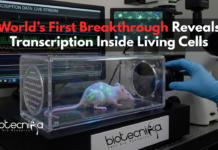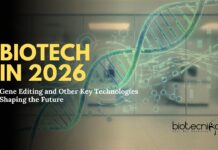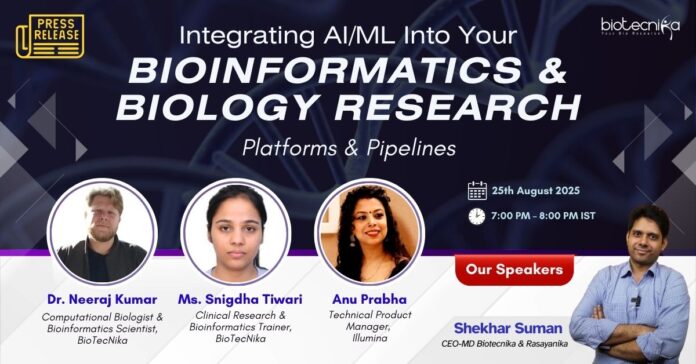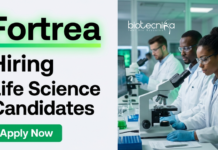Integrating AI/ML In Bioinformatics & Biology Research: Platforms & Pipelines
Empowering Life Sciences Professionals with In-Demand Career Skills
- Date: 25th August 2025
- Time: 7:00 PM – 8:00 PM IST
- Location: Bengaluru, Karnataka (Online Access)
BioTecNika Organizes Insightful Webinar on AI/ML Integration in Bioinformatics & Biology Research
Bengaluru, 25th August 2025 – BioTecNika, a leader in Life Sciences education and industry-focused training, successfully hosted its landmark webinar titled “Integrating AI/ML Into Your Bioinformatics & Biology Research: Platforms & Pipelines” on August 25, 2025.
The one-hour online event attracted hundreds of students, early-career researchers, and professionals eager to explore how Artificial Intelligence (AI) and Machine Learning (ML) are reshaping Bioinformatics, Computational Biology, and Biomedical Research.
Welcome & Opening Context
The session was hosted by Mrs. Urmimala, who set the tone by addressing the growing significance of AI/ML in Biological Research. She explained how modern Biosciences now depend heavily on Computational Intelligence to analyze vast datasets, predict patterns, and accelerate discoveries.
She highlighted how skills in AI/ML are quickly becoming career essentials for Life Science professionals, not just an added advantage. After setting the agenda, she introduced the distinguished speakers: Dr. Neeraj Kumar, Ms. Anu Prabha, and Ms. Snigdha Tiwari.
Session 1: Making Sense of AI/ML for Life Science Students & Researchers
Speaker: Dr. Neeraj Kumar – Computational Biologist & Bioinformatics Scientist, BioTecNika
Dr. Neeraj Kumar kick-started the technical discussions by simplifying AI and ML concepts for the Life Science community. He emphasized that AI/ML need not be intimidating; instead, these tools can become powerful allies in Research if approached with clarity.
Session Highlights:
- Demystifying AI/ML – Simple explanations, breaking down core concepts with Biological analogies.
- Applications in Life Sciences – Gene prediction, protein structure modeling, Biomarker discovery, and CRISPR optimization.
- Types of Machine Learning – Supervised, Unsupervised, Reinforcement, and Deep Learning Explained with Practical Use Cases.
- Core ML Algorithms – Overview of Random Forests, SVM, CNN, and their role in Bioinformatics.
- Success Stories in Biology – Showcasing real-world examples where AI has transformed Research outcomes.
His talk reinforced that AI/ML is no longer optional; it is the backbone of modern Biosciences Research.
Session 2: AI/ML Platforms, Libraries & Tools for Bioinformatics & Biology
Speaker: Ms. Anu Prabha – Technical Product Manager, Illumina
The second session was led by Ms. Anu Prabha, a Computational Biologist and Bioinformatics expert with extensive experience in developing and implementing AI/ML-powered solutions for Genomics and Life Sciences. As a Technical Product Manager at Illumina, she brings both academic depth and industry perspective.
Session Highlights:
- Why Platform Choice Matters – Ms. Prabha explained how the choice of platforms directly impacts research outcomes, scalability, and reproducibility.
- Beginner-Friendly Platforms – Hands-on tools such as Jupyter Notebooks, Google Colab, and RStudio were recommended for early learners.
- Python vs R for AI/ML – She compared both languages, stressing Python’s flexibility with TensorFlow, Keras, PyTorch, and scikit-learn, while R remains robust for Statistical Bioinformatics.
- Essential Libraries & Tools – She outlined indispensable libraries for Biological Data Analysis, including Pandas, NumPy, Bioconductor, and Biopython.
- Pipeline Demonstration – A step-by-step demo screenshot illustrated how an AI/ML Bioinformatics pipeline looks in practice.
- Choosing the Right Tool – Guidance on aligning tool selection with dataset type, complexity, and user expertise.
- Where to Practice – Platforms providing public datasets and sandbox environments were shared to encourage hands-on exploration.
Ms. Prabha’s insights provided participants with a practical toolbox for applying AI/ML in their projects. Her industry-oriented perspective particularly resonated with students aiming to bridge the gap between academic training and real-world Bioinformatics applications.
Session 3: How to Learn & Build Practical Pipelines for Research
Speaker: Ms. Snigdha Tiwari – Clinical Research & Bioinformatics Trainer, BioTecNika
The final session, led by Ms. Snigdha Tiwari, focused on the importance of hands-on, project-based learning in mastering AI/ML for Biology. She emphasized that while theory is essential, real growth comes from building and executing projects.
Session Highlights:
- Learning by Doing: Why project-driven learning is more impactful than passive study.
- Dry-Lab Projects: The perfect solution for students without access to wet labs.
- Project Timelines (3–12 months): How students and professionals can plan realistic Research projects.
- Step-by-Step Guide: Defining problems, sourcing public datasets, training models, and validating results.
- Project Ideas: Examples included disease-gene association studies, drug-target prediction, and the classification of NGS data.
Her session provided attendees with a clear roadmap to initiate their AI/ML journey, even for those with limited prior experience.
About the Speaker – Ms. Anu Prabha

With extensive experience at the intersection of Data Science, Bioinformatics, and Genomics, she has been instrumental in driving solutions that empower researchers and Healthcare professionals to unlock the full potential of Sequencing data.
Her expertise spans:
- Computational approaches in Genomics & Sequencing
- Translating NGS data into Clinical and Research insights
- Building Bioinformatics solutions for precision medicine
Her journey exemplifies the perfect blend of Scientific knowledge and technical leadership, making her an inspiring figure for aspiring Bioinformaticians and Computational Biologists.
Interactive Q&A & Closing Remarks
The webinar concluded with an interactive Q&A session, where attendees sought clarity on programming languages, tool selection, career prospects, and project implementation.
The speakers unanimously emphasized building AI/ML-focused portfolios, leveraging public datasets, and seeking structured mentorship to accelerate careers in Bioinformatics.
During the closing remarks, the host introduced BioTecNika’s AI/ML Internship in Biology & Bioinformatics, designed to provide hands-on projects, expert mentorship, and industry-recognized certifications.
Key Insights from the Webinar
Participants left the session with actionable insights, including:
- AI/ML is revolutionizing biosciences, from Genomics to Drug Discovery.
- Core algorithms and techniques (SVM, CNN, Random Forest) are essential skills for Bioinformatics Researchers.
- Platforms like Jupyter, Google Colab, and RStudio are ideal starting points.
- Python and R both hold critical places in AI/ML Research.
- Hands-on dry-lab projects empower students without access to physical laboratories.
- Project-based portfolios significantly improve employability.
- Structured mentorship accelerates career readiness in Computational Biology.
About BioTecNika
BioTecNika is a pioneering Life Sciences education and training platform dedicated to helping students, researchers, and professionals succeed in Biotechnology, Bioinformatics, Clinical Research, AI/ML applications, and allied domains.
Through expert-led courses, live internships, certifications, and project-based learning, BioTecNika has empowered thousands of learners worldwide. With a strong focus on bridging the gap between academic knowledge and industry readiness, its mission is to make world-class Scientific training accessible and affordable, shaping the future of Healthcare and Life Sciences.
Call to Action
The webinar also announced the launch of BioTecNika’s AI/ML Internship in Biology & Bioinformatics, starting soon. This comprehensive internship offers guided mentorship, hands-on projects, and globally recognized certifications designed to prepare learners for leading roles in Computational Biology, Bioinformatics, and Biotechnology.
For program details and registration, visit: www.biotecnika.org
































